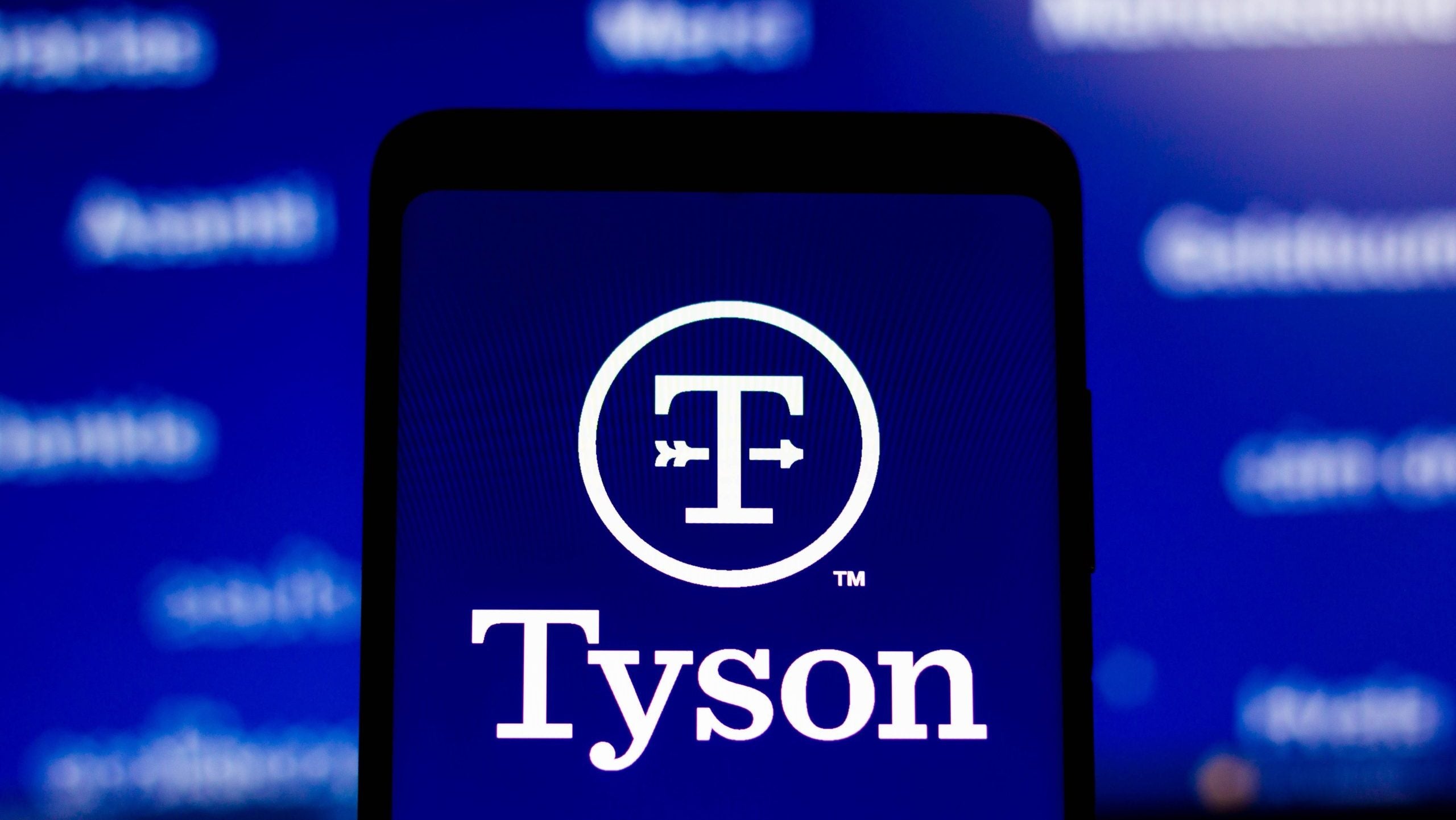

Alongside our daily news coverage, features and interviews, the Just Food team sifts through the week’s most intriguing data sets to bring you a round-up of the week in numbers.
More gloom surrounded Tyson Foods‘ US processing operations and its employees this week as the meat giant announced yet another plant closure, this time for pork.
Results in recent years have shown an annual decline in Tyson Foods’ pork volumes, although they picked up in the first quarter of 2024 but with both revenue and prices down.
Still in the US, French dairy giant Danone announced it was pulling two plant-based milk brands – analysts at Just Food parent company GlobalData are forecasting slowing sales growth for the category over the next few years.
Elsewhere, also in pork, Kansas-based Seaboard Foods is expanding its presence in Japan, where volumes remain subdued. In US seafood, where volumes are forecast to decline, Trident Seafoods is close to selling three processing plants.
Finally, meal-kit business HelloFresh braces for pressure on sales and profits in terms of its targets for 2025.
Access the most comprehensive Company Profiles
on the market, powered by GlobalData. Save hours of research. Gain competitive edge.

Company Profile – free
sample
Your download email will arrive shortly
We are confident about the
unique
quality of our Company Profiles. However, we want you to make the most
beneficial
decision for your business, so we offer a free sample that you can download by
submitting the below form
By GlobalData
Bad news for Tyson employees
Tyson Foods plans to permanently shutter its pork facility in Perry, Iowa, during the summer, putting around 1,276 workers’ jobs on the line.
The meat heavyweight has seen pork volumes decrease in the last three years, with the dollar value also dropping in 2023. However, as Tyson Foods entered fiscal 2024, volumes staged somewhat of a recovery in the first quarter.
Announcing those results in February, president and CEO Donnie King confirmed Tyson Foods, as part of a factory optimisation initiative, had closed six of the company’s “older, less efficient plants in chicken” and two value-added facilities in beef. Perry is now added to the roster.
On the back of the Perry closure, local Mayor Dirk Cavanaugh emphasised the demise of the plant and the loss of jobs was “a big blow to the community”.
As is no doubt the case elsewhere, with plans revealed last year to shutter meat facilities in Florida, Columbia and South Carolina. Poultry factories were also hit with the same fate in Missouri, Indiana, Virginia, Arkansas and North Carolina.
Danone sinks pair of alt-milk brands
The dairy major confirmed it pulled the Silk Nextmilk and So Delicious Dairy Free Wondermilk brands in the US last year.
“We are prioritising our efforts on innovation across our product portfolio to deliver on evolving consumer preferences, including functional and nutritional needs,” Danone told Just Food.
“After some time on shelves, we made the difficult decision to discontinue Silk Nextmilk and So Delicious Dairy Free Wondermilk in 2023.”
Soon after becoming CEO, Antoine de Saint-Affrique set out a SKU rationalisation strategy in 2022 and said 10% of Danone’s portfolio could be up for “rotation”.
In February last year, he said: “Our transformation is about streamlining and a more focused portfolio. Committing to more active portfolio management with focus on the parts of our portfolio which either do not fit with our strategy or where we believe there is no credible path to sustainable value creation.”
The pulled Danone alternative-milk brands are both based on oats. Oatly in Sweden, another manufacturer in the same category that also sells into the US, has faced a struggle in turning a profit.
Oatly announced last month it booked an almost $173m non-cash impairment charge in the final quarter of 2023 related to a decision not to proceed with the construction of three new production plants, including one in the US.
Seaboard Foods eyes pork market in Japan
Seaboard Foods has opened its first sales office in Japan, bolstering the US pork processor’s presence in the Asian country.
The company has been serving the Japanese pork market for around 28 years, after opening a processing plant in Guymon, Oklahoma.
Seaboard Foods of Japan will focus on “building relationships with local customers, understanding the unique needs of the Japanese market and ensuring the delivery of high-quality pork products that meet those needs”, according to a statement.
Aaron Hunerdosse, Seaboard Foods vice president of international sales, said: “This office is a testament to our commitment to meet the growing demand for our high-quality pork products in international markets. We believe that having a direct presence in Japan will allow us to better serve our customers and strengthen our position in the global market.”
The Japanese office, located in Tokyo, will be headed by Charlie Yoshinaga, Seaboard Foods’ international field sales manager. He joined Seaboard last year from Japanese seafood giant Maruha Nichiro.
Yoshinaga said: “Our longstanding relationships with our Japanese customers have paved the way for our products to be found on the shelves of Japanese supermarkets, food service establishments and butcher shops across the nation.
A bilateral trade agreement between the US and Japan came into force in 2020. According to data from the US Department of Agriculture, the US is the largest exporter of pork to Japan, with Canada in second. Japan produces around half the pork it consumes, the USDA says.
Trident Seafoods scales down
The US seafood processor is poised to close the sale of three of its facilities in Alaska after announcing the planned disposals in December.
The company said it had reached the “final stages” of negotiations with buyers for its seasonal facilities in False Pass, Petersburg, and Ketchikan. Local peer Silver Bay Seafoods will be acquiring the Ketchikan salmon processing facility.
Joe Bundrant, CEO at Trident Seafoods, said the company was “intentional about finding buyers who will take great care of the fleet and employees and who will integrate themselves into the communities”.
The frozen and ready-to-eat fish maker first announced its intentions to sell four of its shoreside facilities in the state last December.
A deal is yet to be finalised for its fourth site in Kodiak, with “multiple parties” showing interest, the group said.
The plant, which processes several species and operates throughout the year, is Trident’s “largest and most complex”.
Jeff Welbourn, senior vice president of Alaska operations for Trident Seafoods, said: “Even if we don’t close a deal by this summer, Trident will still provide a market for salmon season in Kodiak,” Welbourn said, adding that its “employees and fleet are secure, and we will share a tender strategy soon.”
HelloFresh sales blow
HelloFresh warned the Germany-based meal-kit delivery company is likely to miss its “mid-term” revenue and profit targets.
Reporting relatively flat revenue for 2023, along with a decline in adjusted EBITDA, HelloFresh said the company’s management had “re-evaluated” the “mid-term business plan”.
That envisages reaching €10bn ($10.9bn) in revenue in the 2025 financial year and an adjusted EBITDA level of €1bn as HelloFresh adjusts to a “very different operating environment”. The company added the targets are “unlikely” to be met.

